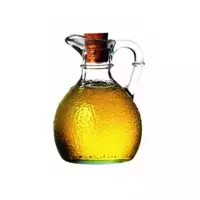Amaranth oil

For our latitudes, vegetable sunflower or olive oil is considered more familiar. However, there are other oils that began to be made and eaten at the dawn of the emergence and development of human society. Amaranth oil is just one of these products. Vegetable amaranth oil is produced from the seeds of the herbaceous plant amaranth, which grows mainly in a warm tropical climate. However, a separate species of Amaranth plants includes over 50 subspecies. Some species of amaranth grow in European territory and in the Russian Federation.
Amaranth was discovered as a food product by the ancient Aztec and Inca tribes who inhabited the South American region before Spanish colonization. Various foods have been made from amaranth for millennia. For example, flour was made from the grains of the plant, from which bread was baked. Until now, amaranth is called "wheat or bread of the Incas and Aztecs. " All components of the amaranth plant are consumed. The useful properties of amaranth oil are primarily due to the chemical composition of the plant seeds from which the product is produced.
Amaranth seeds contain a complex of essential polyunsaturated fatty acids that are so important for human health and wellness. Amaranth oil composition is enriched with biologically active lysine compound. This substance contributes to digestive and metabolic processes in the human body. Amaranth oil is considered the best source of lysine, in the shortage of which proteins cease to be fully absorbed by the body, and a person does not receive the necessary vitamins, minerals and other useful compounds. The composition of amaranth oil is also characterized by a high content of serotonin, choline, vitamins of group B, E, D, tocopherol, squalene and pantothenic acid. This is only a small part of the nutrients that are included in amaranth oil.
Amaranth oil benefits
The beneficial and healing properties of amaranth oil are actively used in pharmacological production and cooking. In the Latin American region, as well as in China and Southeast Asia, amaranth oil is often eaten or used as a medicine. The benefits of amaranth oil in the treatment of inflammatory processes, vitamin deficiency, obesity, decline in strength, anemia, ulcerative and other diseases of the digestive organs, as well as burns, periodontitis and stomatitis have been proven. Recent scientific studies have found that the unique benefit of amaranth oil for humans lies in the content of squalene of a rare compound of natural origin.
Due to the high level of squalene content in the chemical composition of amaranth oil, the product is able to cleanse the body of harmful impurities and slags, as well as normalize cholesterol levels and minimize the harmful effects of radiation on humans. In addition, amaranth oil has an exceptional healing ability. That is why amaranth oil is used in the treatment of severe forms of burns, psoriasis, eczema and other skin diseases.
Amaranth oil for domestic consumers is more exotic than a mandatory product in the daily diet. However, given the results of scientific research and thousands of years of experience in the use of amaranth oil, one should take a closer look at the exotic food product, which can become an excellent source of vitamins, minerals and other naturally beneficial natural compounds for the human body.
amaranth oil 900 kCal
Energy value of amaranth oil (Ratio of proteins, fats, carbohydrates - ju):
Proteins: 13.6 (~ 54 kCal)
Fats: 7 g (~ 63 kCal)
Carbohydrates: 68.6g (~ 274kCal)
Energy ratio (bj | y): 6% | 7% | 30%
 Español
Español Français
Français Português
Português Русский
Русский 简体中文
简体中文 繁體中文
繁體中文 日本語
日本語 한국어
한국어 العربية
العربية Türkçe
Türkçe Қазақ
Қазақ Deutsch
Deutsch Italiano
Italiano Українська
Українська
